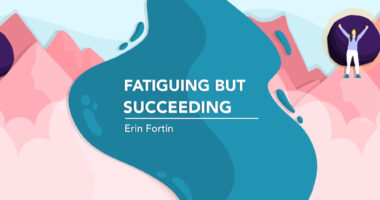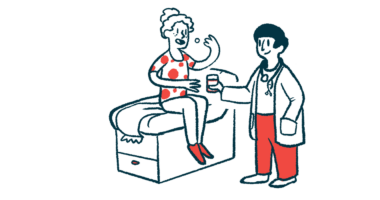How my turbulent health journey helped me cultivate resilience
Navigating the ups and downs of PNH taught me strength and perseverance

The other day, I was telling my story of being diagnosed with paroxysmal nocturnal hemoglobinuria (PNH) and aplastic anemia to a woman over Zoom. Halfway through, she said, “Wow, you are so resilient.” After that, my mind began to wander. Many people have used this word to compliment me, but I’d never thought about what it meant.
The American Psychological Association defines resilience as “the process and outcome of successfully adapting to difficult or challenging life experiences, especially through mental, emotional, and behavioral flexibility and adjustment to external and internal demands.” As I apply this definition to my experience, I think back to my diagnosis, the long road of adapting to change, and how I learned to overcome health challenges.
Learning how to navigate life’s highs and lows is a lifelong process, but finding ways to manage my illnesses felt like yet another battle. In some ways, I felt detached from life and solely focused on my health.
It’s been said that what you give attention will grow. Well, PNH and my other medical concerns forced me to focus my time and energy on my health. Faced with some serious potential outcomes, I had to prioritize an area of my life that had never raised any doubts or fears for me before my diagnosis. As a result, my resilience grew.
A roller-coaster ride
The process of learning how to cultivate resilience began on a low: when I learned of my diagnosis. I’ll never forget the fear, worry, doubt, and loneliness I felt in that moment. I had to let go of my “normal” life and step into the unknown, which forced me to learn tough lessons along the way.
I felt like I was on a roller coaster and couldn’t view the path in front of me. I never knew when I’d be ascending or descending. As much as I wanted to get off the ride and walk a straight path, the roller coaster made me resilient.
My low moments were filled with sudden changes that resulted in mental, physical, and emotional battles. It took a lot of strength to keep going during those times.
Fortunately, I began building relationships with other patients and families I would never have met if not for my chronic illnesses. I found my tribe, and it helped me feel less alone. With these people, I felt my mood and emotions start to ascend.
The days were still tough, but I began to develop a routine. I was learning about health, listening to my body, and resting when I needed to. Getting in tune with myself helped me feel more confident at the doctor’s office.
Through the roller coaster’s many ups and downs, I began to understand how to navigate both types of moments. That meant celebrating the wins, large and small, and giving attention to feelings often seen as negative.
Resilience isn’t something I consciously set out to cultivate within myself. All I knew was that I would win my health battle. I just didn’t realize I’d become stronger along the way.
What word defines your health journey? Comment below; I’d love to know more.
Note: PNH News is strictly a news and information website about the disease. It does not provide medical advice, diagnosis, or treatment. This content is not intended to be a substitute for professional medical advice, diagnosis, or treatment. Always seek the advice of your physician or other qualified health provider with any questions you may have regarding a medical condition. Never disregard professional medical advice or delay in seeking it because of something you have read on this website. The opinions expressed in this column are not those of PNH News or its parent company, Bionews, and are intended to spark discussion about issues pertaining to paroxysmal nocturnal hemoglobinuria.




